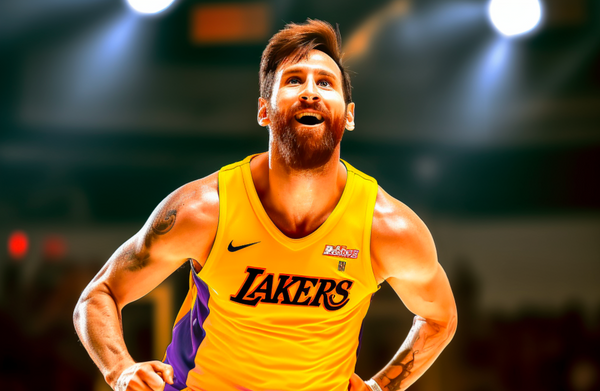Data-Driven Player Scouting

Artificial Intelligence (AI) is revolutionizing the sports industry, particularly in player recruitment and scouting. By analyzing large amounts of player data, identifying potential talent, predicting player performance, and monitoring player performance, AI is helping teams make more informed decisions about player recruitment[1]. The global AI in sports market is expected to grow at a CAGR of 30.3% by 2030, reaching a market value of over $19.2 billion[7].
👀 Key Takeaways
- AI is streamlining scouting and recruitment in sports, making it more efficient and data-driven[1].
- The demand for AI in sports is driven by the need for player monitoring, tracking data, and real-time data analytics[2].
- AI can help in predicting player performance, injury prevention, and game strategy optimization[13].
- The global AI in sports market is expected to reach $19.2 billion by 2030, growing at a CAGR of 30.3% [7].
- AI is transforming various aspects of sports, from training and development to fan engagement and revenue generation[13].
🔍 Market Trends
- Increasing demand for real-time data analytics in sports[2].
- Growing adoption of AI for making future predictions[7].
- Proliferation of AI in player tracking, performance analysis, and game strategy optimization[9].
- Rising demand for chatbots and virtual assistants to interact with fans[7].
- Growing competitiveness in sports across nations, driving the need for advanced analytics[2].
🏆 Top Businesses
- Second Spectrum: Second Spectrum offers AI-driven solutions for basketball scouting and player performance analysis.
- Zebra Technologies: Zebra Technologies provides AI-powered player tracking and performance analysis solutions for various sports.
- Hudl: Hudl offers AI-enabled video analysis tools for sports teams, including player scouting and performance analytics.
🧩 What If Scenarios
- What if AI could predict and prevent player injuries with high accuracy, leading to longer and healthier careers for athletes?
- What if AI-driven scouting and recruitment systems could identify undiscovered talent from remote and underprivileged regions, providing equal opportunities for aspiring athletes?
- What if AI could help create personalized training and diet plans for each player, optimizing their performance and overall well-being?
💡 Idea Generation
- Develop AI-powered tools to analyze social media data for scouting potential talent and understanding fan sentiment.
- Create AI-driven virtual reality training simulations to help athletes improve their skills and decision-making in a controlled environment.
- Implement AI-based video analysis systems to automatically detect and analyze key moments in games, providing instant feedback to coaches and players.
- Use AI to optimize ticket pricing and stadium seating arrangements, maximizing revenue and enhancing the fan experience.
- Leverage AI to create personalized fan engagement strategies, including targeted marketing campaigns and tailored content recommendations.
🔮 Future Impact
- AI will continue to revolutionize sports analytics, providing unprecedented insights into performance and game strategy[9].
- The adoption of AI in sports will lead to more data-driven decision-making, resulting in improved team performance and competitiveness[1].
- AI will play a crucial role in injury prevention and player well-being, potentially extending athletes' careers[13].
- The use of AI in fan engagement and revenue generation will create new opportunities for sports organizations and businesses[13].
- As AI technology advances, we can expect even more innovative applications and solutions in the sports industry[1].
In conclusion, AI is transforming the world of sports, from player recruitment and scouting to game analysis and fan engagement. As technology continues to advance, we can expect even more innovative applications and solutions that will reshape the sports industry and create new opportunities for athletes, teams, and fans alike.





